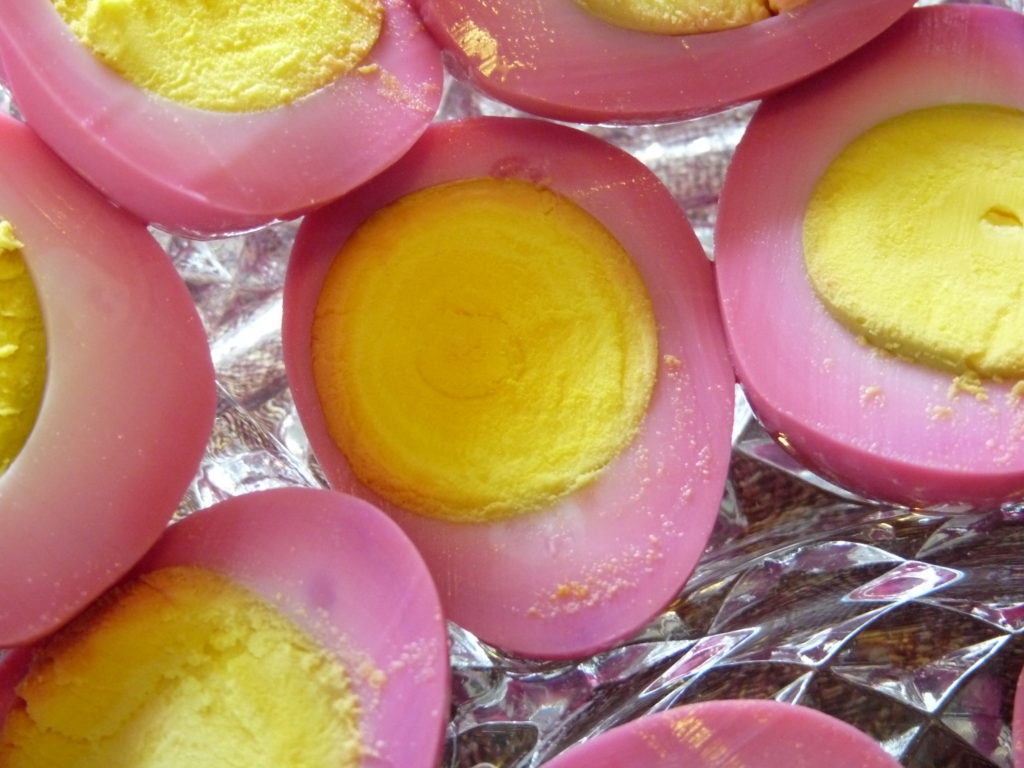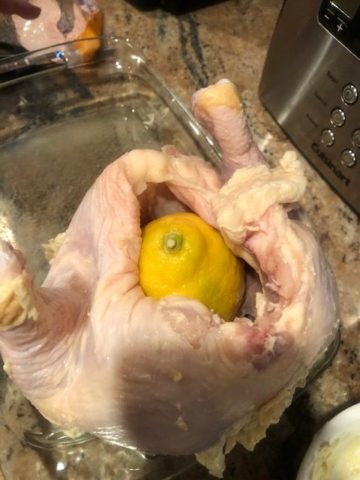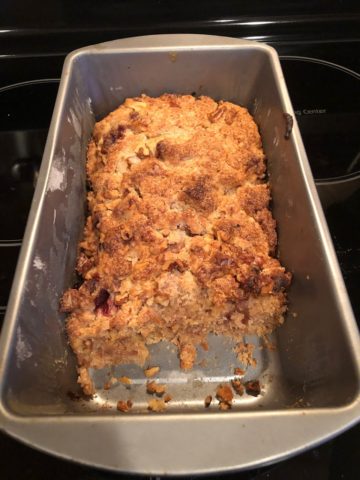Deviled Eggs & Backyard BBQ: 6 Steps to a Perfect Boiled Egg
Summer = backyard barbeques! Of course, the meat always steals the show, but side dishes are important, too! There’s a serious side-dish rut about this time. Your friends get the fun job of selecting the meat: burgers or brats? (Such a tough choice!) But guess who is stuck with the side dishes? I like plain old potato chips as much as anyone, but after a while, you want a little variety. That’s where our lovely pastured eggs star. Boiled, deviled or pickled, eggs are a fast and convenient crowd-pleaser. There’s nothing easier than boiling an egg. But there nothing more elusive, apparently, than boiling an egg perfectly! It’s all about peel-ability.
Temperature: This is number one because it’s the most important. Eggs are protein. They don’t do well going from cold to hot. For the same reason that we don’t put frozen steaks on a grill, we don’t want to shock our cold eggs by submerging them in boiling water! A frozen steak will be tough, a cold egg will be tough to peel. Let them sit out until they are room temperature – you are going to boil them so there no pathogenic growth concerns.

Mmmm, Rosanna's pickled eggs...

Rosanna eggs us on
Egg Age: The older the better for boiled eggs, because the more air that has seeped inside the shell, the easier they are to peel. The air cell expands with time, and this creates more space between the egg membrane and shell. Ideally, eggs should “age” at room temperature for a week to increase the air cell size. This is perfectly safe if the egg is clean, uncracked, and preferably unwashed. We usually boil our short-keepers, though. These are eggs with cracks and they do need refrigerated.
Egg Color: Actually, has nothing to do with the success of boiling an egg, but it is often an indicator of the eggs freshness. If you purchased your eggs from a local farmer, they are most likely brown-shelled, as these hens are a sturdier breed for the outdoor environments. If you have local, brown eggs, they are most likely much fresher than the eggs that have been shuffled from one giant warehouse to another over the last 30 – 45 days. And, as we discussed previously, the fresher eggs have smaller air cells, thus making them harder to peel. At our farm, we try to set eggs aside for one week from the date of lay to ensure that the aircell has expanded somewhat. But you could let them sit for 30-45 days if you really wanted to get egg-peeling down to an art form!
Steam/Boil: The most ideal way to hard-boil eggs is to steam them. I don’t know the scientific reason why, I just know it works the best. Insta-Pots have become popular, and, if you are in possession of one, use it for your eggs! I’m told the egg shells nearly fall off on their own… But I don’t have one personally, so I have no further tips. For the rest of us folks with ordinary but shiny stainless-steel pots, you can also steam them if you have a nice seafood pot with steamer basket.
A good, old-fashioned boil also works well, and is super simple: Place room-temperature eggs into a pot of boiling water. (key: room-temperature) Immediately cover pot and turn off heat. Let set for 10 minutes, then drain off hot water and cool.
Cooling: This seems to be the second-most important step, as the chilling does wonders for getting that egg membrane to pull away from the shell. I sort-of throw the eggs and hot water into the sink at once so that they bump and crack into each other. If you don’t have a deep sink, you can crack each egg before immersing it in the cooling water. Let the eggs sit in cool water for 30 minutes before peeling. The water can’t be too cold. Ice water is best, because egg is protein (remember?) and we are trying to shock it this time, so that it shrinks and pulls away from the shell. Cracking the shell enables that cold water to sneak in between the egg and shell.
Peeling: Under cold, running water, just like we’ve always done. The water helps separate the egg and shell as well as rinsing away shell bits. If you’ve done the previous steps correctly, the peeling is actually easy!





Joe Buchholz
Hello! I always start my r t eggs in cold water till it boils,then turn off the heat and cover.Let sit for 30 min.Then in ice water after cracking them for 15-20 min.The shells just about fall off.
Kevin
Thanks for the tip, Joe, I'll have to try that!